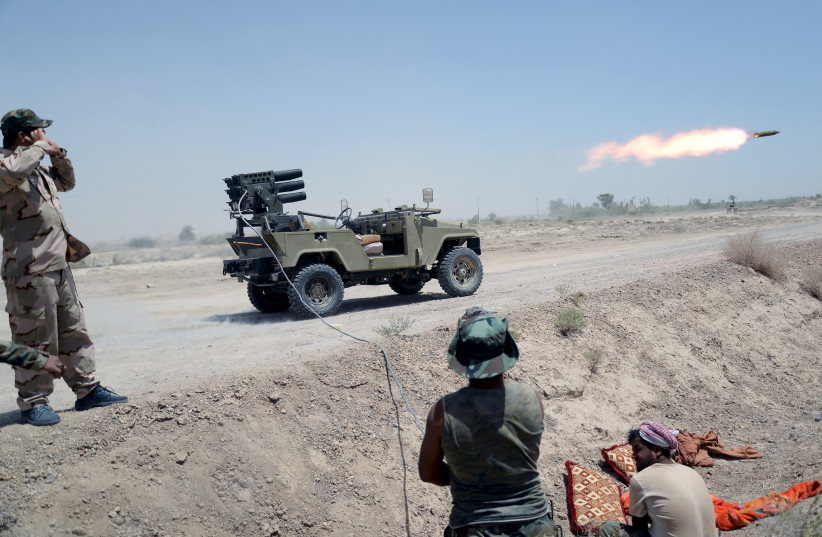A comprehensive study led by the Institute for Monitoring Peace and Cultural Tolerance in School Education (IMPACT-SE) analyzing 71 textbooks from Iraq’s national school curriculum between 2015-2022 shows worrying trends of antisemitism, Shi’ization, and ignoring terror.
The report delved into the portrayal of history, language, and religious education, which echoed narratives prevalent during Saddam Hussein’s reign, with limited coverage of events post-1958, indicating a deliberate framing of historical contexts.
While aiming to strike a balance between Iraqi, Kurdish, and Arab identities, the textbooks exhibit biases and contradictions, particularly in their treatment of religious minorities. The curriculum appears to navigate a delicate balance between acknowledging diversity and perpetuating sectarian tensions.
The report emphasized the textbooks’ portrayals of religious and ethnic groups, notably Jews, who are depicted in a deeply negative light, while their historical contributions and sufferings are conspicuously absent. Moreover, the curriculum’s approach to regional conflicts, particularly the Arab-Israeli conflict, reflects a staunch and not surprising anti-Israel stance, perpetuating hostility and disregarding peace efforts.
An intricate web of narratives
The study sheds light on the intricate web of narratives shaping Iraq’s educational landscape since the 2003 US Coalition invasion. Amidst competing ideologies and historical legacies, the challenge remains to reconcile diverse identities and narratives within the curriculum, ultimately influencing societal perceptions and national cohesion.

In all textbooks examined, “Israel” was not mentioned even once, rather it is called “Zionist entity” or “Zionist imperialism”. Conspiracy theories are also present, such as a 9th-grade text that accuses Zionism of being a racist, expansionist ideology aiming to spread from the Nile to the Euphrates, or that Zionists started to use the name Jerusalem rather than Al-Quds only after the 1967 war.
Jews as a group are portrayed as plotters against Islam and its prophet Muhammad. The battles against the Jewish tribes of the Arabian Peninsula are commended. In a Grade 8 lesson, Jews are portrayed negatively as corrupt, tyrannical, deviant, and even as infidels. The same textbook also includes a story of a Jew selling water to Muslims at inflated prices and blames “Jewish and colonialist movements” for distorting the perception of Islam.
Despite the significant contributions of the Jewish community to Iraq’s political, economic, cultural, and educational spheres, their presence is absent from the historical narrative. Textbooks also fail to mention the harassment and persecution of Jews, such as the Farhoud of June 1941, in which hundreds of Jews were killed, wounded, and had their property ransacked.
In a country with a reported majority of Shi’ite citizens (around 60% according to estimates), the report also pointed at an intriguing trend of Shi’ization in Islamic Education textbooks and a possible marginalization of Sunni students since the fall of Saddam Hussein in 2003. This is exemplified in many instances of praise and even veneration for the central character of Shi’ite Islam, Imam Ali Ibn Abu Talib, adding that “the textbooks give the impression that more emphasis is placed on the unique characteristics of Ali than those of Muhammad.”
The report also pointed out that non-governmental militias, such as the Shii Al-Hashad Al-Shaabi, loyal to Iran, are portrayed as playing a positive role in the fight against terror. The textbooks made a point to disavow ISIS as “falsely claiming to be Islamic.”
IMPACT-se CEO, Marcus Sheff, said: “The Iraqi curriculum’s perpetuation of antisemitic tropes and virulent hostility towards Israel is in flagrant violation of UNESCO standards of peace and tolerance. Worryingly, the textbooks also teach children that martyrdom and violent jihad are desirable. It is perhaps, therefore, no surprise that there is evidence of possible Iranian influence in the curriculum, reflecting the wider dynamics of the region.”
